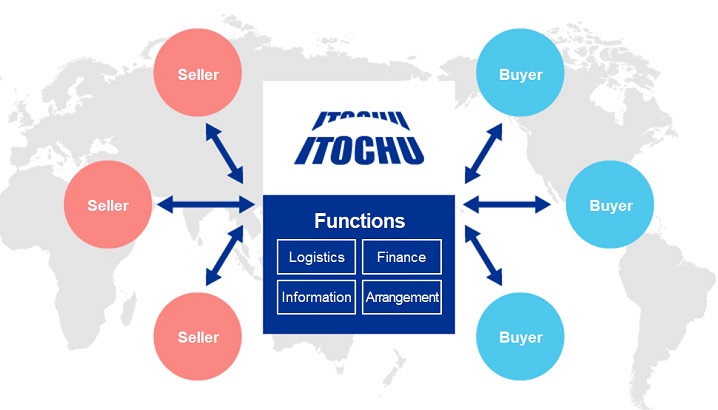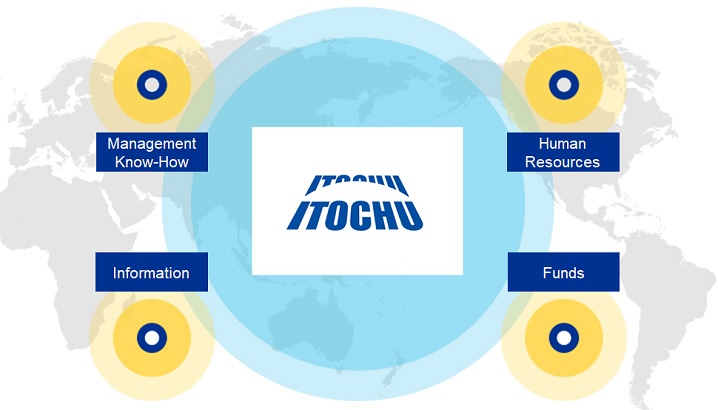What is a Sogo-Shosha (General Trading Company)?
Business Model of a Sogo-Shosha (General Trading Company)
The competitive advantages that support the functions of general trading companies are (1) business know-how cultivated through diverse business activities, (2) connections with customers and partners in wide ranging business fields, (3) a robust global logistics and information network, and (4) abundant financial power and ability to expand all business possibilities.
Utilizing these strengths, general trading companies typically develop businesses centered on two pillars, trade and business investment. Recently, the ratio of business investment has been increasing.
Trade
Trade is a traditional and basic business for general trading companies. General trading companies build relationships with customers and partners through the sale and mediation of products, as we seek to globally expand sales channels and information networks for diverse products. We also contribute to various transactions around the world by creating added value, such as providing logistics or financial functions.

Business Investment
General trading companies conduct business investment with the aim of improving the corporate value of investees and creating synergies on the premise of continuous holding. We expand business by making business investment in diverse fields and regions, for example, procuring raw materials and products in the upstream area, or providing products and services in the downstream area. We also work to improve the corporate value of investees by investing management resources (management know-how, human resources, infomration, funds, etc.) and executing business restructuring.

ITOCHU's Business Model and Sustained Value Creation
ITOCHU's business model balances trade and business investment, without excessively focusing on either. We carefully select fields and regions where we have knowledge with high-probability of success. We expand and evolve businesses continuously and multifacetedly in response to changes in the external environment and consumer needs.
In recent years, due to the progress of DX and rising awareness of sustainability, the center of value chain is shifting to downstream (consumer contact points). Along with this current, ITOCHU is breaking down conventional value chains and organizations based on product silos, and shifting to a "market-oriented" perspective in order to promote the construction of downstream-centered business models which meet consumer needs. In addition, we are working to further improve asset efficiency by optimizing and streamlining value chains through continuous asset replacement and utilization of new technologies and data.
